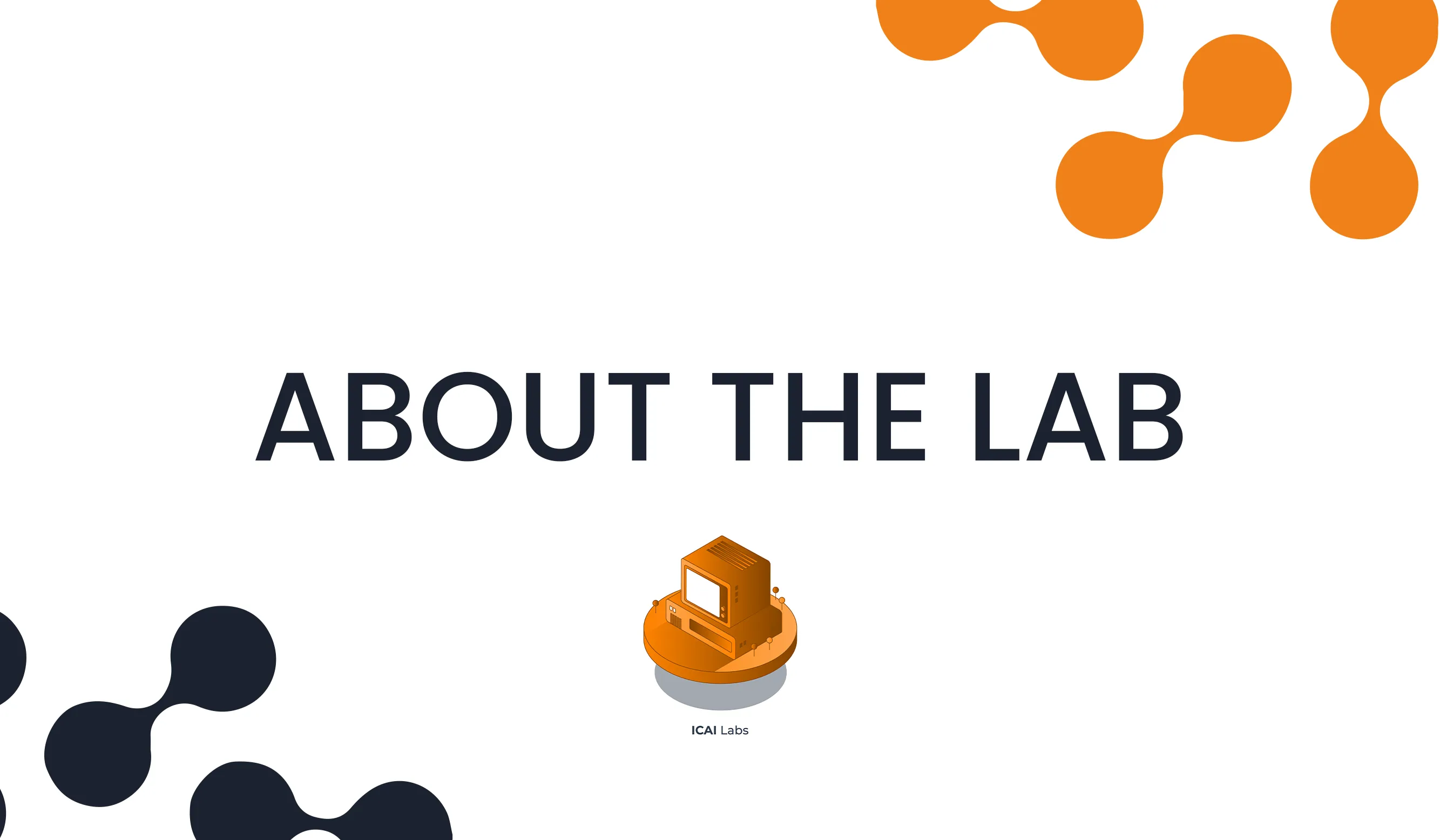Radboud AI for Health Lab
A collaboration between Radboud UMC and Radboud University.
Radboud AI for Health is a collaboration between Radboud University and Radboudumc. The lab works on innovations in the field of Artificial Intelligence that improve healthcare, make it cheaper and improve decision-making.
The Radboud AI for Health lab is part of Radboud AI, the campuswide initiative to stimulate public-private partnerships and to start new AI research projects in Nijmegen and the surrounding area. The innovations developed by the lab will be applied in Radboudumc and other healthcare institutes. 6 PhD students are working on projects on AI applications in the hospital. In addition, the lab researchers supervise around 35 projects of Bachelor and Master students every year. Radboud AI for Health also provides two specific training courses for employees of the Radboudumc each year to further train them in the field of Artificial Intelligence and its application in healthcare.
‘We just do it!’
Paul Smits, chairman of the Radboudumc Board of Director: “With Radboud AI for Health and Thira Lab we are taking a major step forward in the application of Artificial Intelligence in healthcare. As Radboudumc, we work with the partners in our network on a daily basis to create workable innovations that make healthcare better and cheaper. Artificial Intelligence plays a crucial role in this. With these initiatives, we once again confirm our regional and national cooperation agenda, which we are bringing together in the TopFit program. I am proud that we have succeeded in realizing these initiatives in less than a year; we just do it!”
AI and healthcare
Healthcare is seen as one of the areas where AI will have a profound impact. Data is ubiquitous in hospitals, and is available in a many forms: patient records, clinical signs and measurements, genetic information, text reports, and images. This data forms the basis for decisions, the diagnosis of a disease, detection of acute and long-term risks, treatment plans, treatment monitoring, and real-time support for example during surgery and interventions.
Artificial intelligence can support clinical decisions, assist in numerous ways, improve healthcare by finding better ways to extract clinically useful information from data, and automate tasks and thereby reduce costs and keep healthcare affordable. By carrying out projects within hospitals, the vast amounts of data available in healthcare can be unlocked for research, of course always in compliance with privacy regulations and ethical standards, and this makes healthcare an interesting domain for AI researchers.
Radboud AI is a campus-wide initiative to improve collaboration and start new projects with AI researchers in Nijmegen.
Radboudumc Innovation Space houses BSc and MSc students who perform AI research projects in collaboration with Radboudumc clinicians.



Research projects
MIHRacle: Multi-modal Interactive Health Records: Arjen de Vries (Radboud University), Faegheh Hasibi (Radboud University) and Bram van Ginneken (Radboudumc) investigate (semi-) automatic methods to make the information from electronic patient records available in an interactive and comprehensible way for patients.
AI-driven genetic diagnosis for rare diseases: Christian Gilissen (Radboudumc), Marcel van Gerven (Radboud University) and Helger Yntema (Radboudumc) are developing a self-learning AI algorithm that can automatically detect patients with genetic diseases by using the more than 500 TB of available genetic data.
Unraveling mechanisms of vascular function and regulation with causal discovery: Jurgen Claassen (Radboudumc), Tom Claassen (Radboud University) and Elena Marchiori (Radboud University) is developing a data model that helps to discover links between vascular function and the brain, to predict the course of, among others, Alzheimer’s and complex vascular surgery.
AI-based treatment decision support in patients with chronic degenerative low back pain: Nikolas Lessmann (Radboudumc) and Miranda van Hooff (Sint Maartens clinic) are working to develop a decision support tool that helps patients and their caregivers to choose the best treatment for lower back pain.
Predictive modeling in the ICU Sepsis: central venous catheter infection appearance: Tim Frenzel (Radboudumc), Jeroen Schouten (Radboudumc) and Marcel van Gerven (Radboud University) are developing an algorithm for predicting the occurrence of a catheter infection in the Intensive Care Unit
Development and validation of a deep-learning system for wisdom tooth removal: Shankeeth Vinayahalingam (Radboudumc and Radboud University), Thomas Maal (Radboudumc) and Tong Xi (Radboudumc) are working on an AI-driven ‘flowchart’ for surgeons to prevent the unnecessary removal of wisdom teeth.
People

PHD Students





Partners
Radboud University (RU) is a general university in The Netherlands, active in almost all scientific fields, and one of the leading universities worldwide.
The Radboud University Medical Center (Radboudumc) is the teaching hospital affiliated with the Radboud University, in the city of Nijmegen in the eastern-central part of the Netherlands.


.svg)

